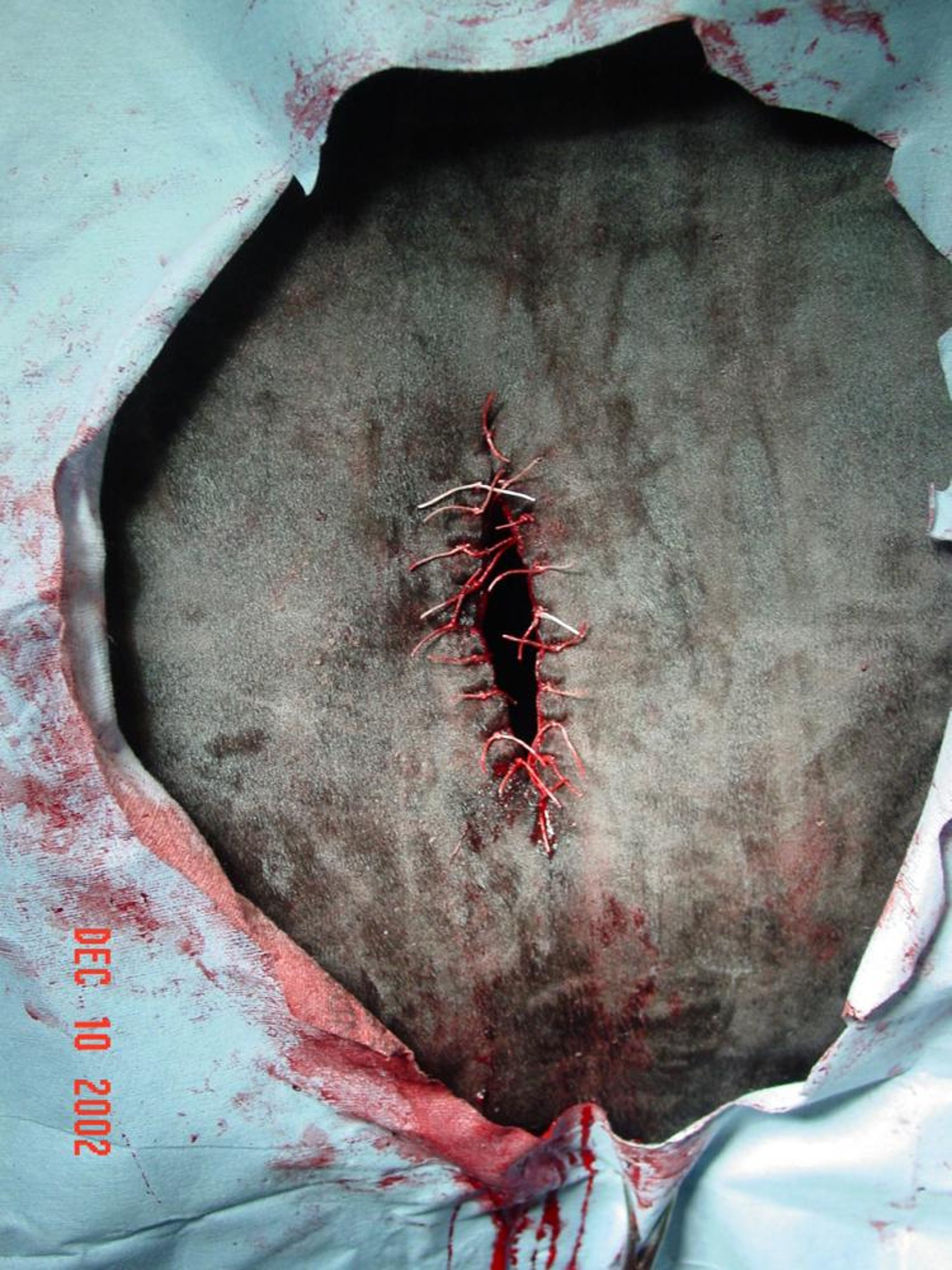Courtesy of Dr. Jan Hawkins, Purdue University.
Courtesy of Dr. Sameeh M. Abutarbush.
Pharyngeal trauma in ruminants is not uncommon and is often due to iatrogenic causes, such as incorrect passage of balling guns or attempts to pass probangs orally. Affected cattle develop severe swelling of the head and proximal neck secondary to diffuse cellulitis caused by penetration of the pharyngeal mucosa. Feed frequently becomes impacted in these areas and can lead to acute dyspnea.
Management of pharyngeal trauma in ruminants should include the placement of a temporary rumen fistula to provide extraoral supplemental nutrition while the pharyngeal defect heals. Treatment should also include administration of systemic antimicrobials and anti-inflammatory agents. Some affected animals may also require surgical drainage of abscessation secondary to accumulation of feed and foreign material.
In small animals, oropharyngeal foreign bodies are quite common in dogs but less so in cats. However, cats are prone to ingestion of linear foreign bodies, which may become entangled with the tongue and can be identified with a careful oral examination under sedation or general anesthesia. Penetrating foreign bodies include pins, needles, and pieces of stick or bone fragments.
Small animals suspected to have oropharyngeal foreign bodies should be evaluated with an oral examination while sedated or anesthetized and with radiographs or ultrasonography to identify all foreign material present. Once identified, pharyngeal foreign bodies may be removed directly via the oral cavity, endoscopically or surgically as indicated.
